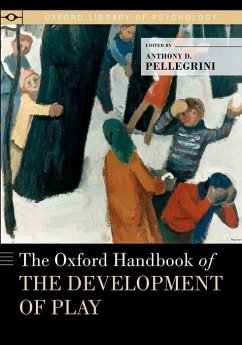
Oxford Handbook of Media Psychology
Versandkostenfrei!
Versandfertig in 1-2 Wochen
91,99 €
inkl. MwSt.

PAYBACK Punkte
46 °P sammeln!
As the first handbook of its kind, The Oxford Handbook of Media Psychology documents the content, methods, theories, and approaches that characterize the scholarship of media psychology. In doing so, it defines the field.














